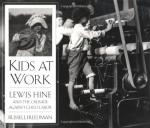|
This section contains 5,875 words (approx. 20 pages at 300 words per page) |

|
SOURCE: Wallins, Roger P. “Victorian Periodicals and the Emerging Social Conscience.” Victorian Periodicals Newsletter 8, no. 2 (June 1975): 47-59.
In the following essay, Wallins claims that social problems such as child labor, poor housing, and overcrowded, unsanitary graveyards brought to the attention of the middle class by nineteenth-century novelists had been exposed by popular periodicals much earlier.
For much of the twentieth century, critics of Victorian ‘social-problem’ novels have tended to view such works as exposing the working and living conditions of the lower classes. The novels, these critics imply, materialized out of the authors' personal experiences, observations, and reading: Dickens' peripatetic wanderings through London's slums and his early journalistic career were viewed as preparation for his novels from Oliver Twist, which Louis Cazamian viewed as the first “social novel”,1 to Our Mutual Friend; Disraeli, influenced by Carlyle and by the First Report of the Children's Employment Commissioners (1842), incorporated both...
|
This section contains 5,875 words (approx. 20 pages at 300 words per page) |

|


